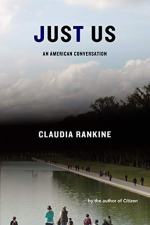
|
| Name: _________________________ | Period: ___________________ |
This test consists of 15 multiple choice questions and 5 short answer questions.
Multiple Choice Questions
1. Which of the following young Black men was violently killed for no cause in 2012?
(a) Trayvon Martin.
(b) George Floyd.
(c) Rauri Stone.
(d) Martin Davis.
2. What does Rankine think about the preschool teacher's tears when her friend removed her young son from the private school?
(a) She thinks the teacher feared for her own job.
(b) She thinks the teacher must have been remorseful.
(c) She thinks of white female fragility and victimhood.
(d) She thinks the teacher was suspicious.
3. What does Rankine insist at a dinner party in Part III was a major cause of Donald Trump's presidential election in 2016?
(a) The Democrats' incompetence.
(b) Racism.
(c) Russian interference.
(d) A very good communications team.
4. What does Rankine believe is foundational to all our problems in America?
(a) Poisoned water systems.
(b) Anti-Black racism.
(c) Unequal access to higher education.
(d) Economic inequality.
5. Which former U.S. President wrote parts of Notes on the State of Virginia?
(a) John Adams.
(b) Thomas Jefferson.
(c) Andrew Jackson.
(d) George Washington.
6. Who did Laura Ingraham address her "Shut up and dribble" comment to, as cited by Rankine in Part IV?
(a) Kobe Bryant.
(b) Charles Barkley.
(c) Magic Johnson.
(d) LeBron James.
7. What is the title of Wendy Roth's book that Rankine cites in Part IV?
(a) The Great Second Migration: Latinos and the Integration Politics.
(b) The New Latinos in America.
(c) Race Migrations: Latinos and the Cultural Transformation of Race.
(d) Texas Today: Latinos Find Their Political Voice.
8. Which Latino poet does Rankine discuss briefly with her friend in Part IV?
(a) Rafael Bolo.
(b) Roberto Beto.
(c) Jose Marti.
(d) Jiminez Gutierriez.
9. What does Rankine refer to "the gloom" in her poem in Part III?
(a) The way white people often deflect discussions about racism.
(b) The lack of nuance in discussions about racism.
(c) Toadyism.
(d) The off-white of white.
10. What does the sign the man in the photograph on page 140 of this book say?
(a) I do not have enough food to eat; how can I be privileged?
(b) I am not ashamed/afraid to be white.
(c) No whites, no service.
(d) I am not white male privilege.
11. What does Rankine refer to when she uses the term "R and R" in Part III?
(a) Rest and Relaxation.
(b) Ruminations and Reparations.
(c) Reparations and Reconstruction.
(d) Reconstruction and Remorse.
12. What does Rankine say to her white friend at the end of the play they see together in Part III?
(a) I didn't know you didn't like me.
(b) I didn't know you were Black.
(c) I didn't know you had this much hate in your heart.
(d) I didn't know you were racist.
13. What phrase do people who want to excuse men's inappropriate or even abusive behavior towards women often say, according to Rankine?
(a) It is what it is.
(b) Boys will be boys.
(c) They made him do it.
(d) You can not have an omlette without breaking some eggs.
14. What does Rankine do to small pieces of the text of her poem on page 213 that is visually striking?
(a) Puts the words in very bold text.
(b) Put the words in italics.
(c) Puts the words in red text.
(d) Puts the words in sanskrit.
15. In what year did the Smithsonian Institution put on its first major show focused on the work of Latinos?
(a) 2010.
(b) 2013.
(c) 2020.
(d) 2008.
Short Answer Questions
1. Which actress does Rankine mention as being blacklisted in the 1960s?
2. What does conversing risk mean, according to Rankine in Part IV?
3. Which first lady does the actress who becomes blacklisted speak with in the 1960s, which leads to her being blacklisted?
4. What percentage of public school teachers are white, according to the National Center for Education Statistics' data for 2015-16?
5. What word did a preschool teacher for a friend of Rankine's four-year old son use for the child when he had a temper tantrum at school?
|
This section contains 627 words (approx. 3 pages at 300 words per page) |

|




